- Home
- Anne Lamott
Hallelujah Anyway
Hallelujah Anyway Read online
ALSO BY ANNE LAMOTT
NONFICTION
Operating Instructions: A Journal of My Son’s First Year
Bird by Bird: Some Instructions on Writing and Life
Traveling Mercies: Some Thoughts on Faith
Plan B: Further Thoughts on Faith
Grace (Eventually): Thoughts on Faith
Some Assembly Required: A Journal of My Son’s First Son
Help, Thanks, Wow: The Three Essential Prayers
Stitches: A Handbook on Meaning, Hope and Repair
Small Victories: Spotting Improbable Moments of Grace
FICTION
Hard Laughter
Rosie
Joe Jones
All New People
Crooked Little Heart
Blue Shoe
Imperfect Birds
RIVERHEAD BOOKS
An imprint of Penguin Random House LLC
375 Hudson Street
New York, New York 10014
Copyright © 2017 by Anne Lamott
Penguin supports copyright. Copyright fuels creativity, encourages diverse voices, promotes free speech, and creates a vibrant culture. Thank you for buying an authorized edition of this book and for complying with copyright laws by not reproducing, scanning, or distributing any part of it in any form without permission. You are supporting writers and allowing Penguin to continue to publish books for every reader.
The author gratefully acknowledges permission to reprint “Famous” from Words Under the Words: Selected Poems by Naomi Shihab Nye, copyright © 1995. Reprinted with the permission of Far Corner Books.
Ebook ISBN: 9780735213593
Library of Congress Cataloging-in-Publication Data
Names: Lamott, Anne, author.
Title: Hallelujah anyway : rediscovering mercy / Anne Lamott.
Description: New York : Riverhead Books, 2017.
Identifiers: LCCN 2016036301 | ISBN 9780735213586
Subjects: LCSH: Mercy.
Classification: LCC BV4647.M4 L36 2017 | DDC 241/.4—dc23
LC record available at https://lccn.loc.gov/2016036301
p. cm.
Penguin is committed to publishing works of quality and integrity. In that spirit, we are proud to offer this book to our readers; however, the story, the experiences, and the words are the author’s alone.
Version_1
This is dedicated with much love and gratitude to the people who helped me so much this time: Father Jim Harbaugh, S.J., Father Tom Weston, S.J., Rabbi Margaret Holub, Tim Pfaff, Judith Rubin, Doug Foster, Jake Morrissey, Janine Reid, Neshama Franklin, the Reverend Veronica Goines; and to the people of St. Andrew Presbyterian Church, Marin City, California (Services at 11:00).
Contents
Also by Anne Lamott
Title Page
Copyright
Dedication
“Famous”
ONE
The Mercy Workshop
TWO
Life Cycles
THREE
Gold Leaf
FOUR
Destinations
FIVE
Impatiens
SIX
Planes
SEVEN
As Is
EIGHT
Mostly
NINE
The Open Drawer
Acknowledgments
About the Author
FAMOUS
The river is famous to the fish.
The loud voice is famous to silence,
which knew it would inherit the earth
before anybody said so.
The cat sleeping on the fence is famous to the birds
watching him from the birdhouse.
The tear is famous, briefly, to the cheek.
The idea you carry close to your bosom
is famous to your bosom.
The boot is famous to the earth,
more famous than the dress shoe,
which is famous only to floors.
The bent photograph is famous to the one who carries it
and not at all famous to the one who is pictured.
I want to be famous to shuffling men
who smile while crossing streets,
sticky children in grocery lines,
famous as the one who smiled back.
I want to be famous in the way a pulley is famous,
or a buttonhole, not because it did anything spectacular,
but because it never forgot what it could do.
—Naomi Shihab Nye
ONE
The Mercy Workshop
There are times in our lives—scary, unsettling times—when we know that we need help or answers but we’re not sure what kind, or even what the problem or question is. We look and look, tearing apart our lives like we’re searching for car keys in our couch, and we come up empty-handed. Then when we’re doing something stupid, like staring at the dog’s mismatched paws, we stumble across what we needed to find. Or even better, it finds us. It wasn’t what we were looking or hoping for, which was usually advice, approval, an advantage, safety, or relief from pain. I was raised to seek or achieve them, but like everyone, I realized at some point that they do not bring lasting peace, relief, or uplift. This does not seem fair, after a lifetime spent in their pursuit. Where, then, do I turn in these increasingly frightening days? Where do I look for answers when I’m afraid, or confused, or numb? To an elegant Japanese sage? A dream-dancing Sioux grandmother with a tinkling laugh? No. More often than not, the North Star that guides me through the darkness is the Old Testament prophet Micah. He must have looked like a complete stoner or a Game of Thrones extra, and smelled like a goat, yet nearly three thousand years ago, he spoke the words that often remind me of my path and purpose: “What doth God require of thee but to do justice and to love mercy, and to walk humbly with thy God?”
Oh, is that all? Justice, mercy, and humility? That’s nice. Right off the bat I can tell you that “walk humbly with thy God” is not going to happen anytime soon, for me or my closest friends. Arrogance Us. My humility can kick your humility’s butt. What Micah is talking about is grad school curriculum, while, spiritually speaking, I remain in junior high school, superior and cringing at the same time. And “to do justice” may be a trick, since we all think we do this anyway. We think that if our values aren’t the correct ones, we would have other ones, which would then be the correct ones.
Otherwise, these words are both plainsong and sublime. How can you not love mercy—kindness, compassion, forgiveness? It’s like not loving dessert, or cheese. If nothing makes people happier than service, especially to the poor, why not tap into the model of the Buddha, Jesus, or Wavy Gravy, the knowledge that if you do loving things, you’ll have loving feelings?
Here’s how: We’re so often rattled by lingering effects of trauma and paralyzing fear.
At first glance, they seem inextricable. Trauma, which is stored differently in the brain than memory, seeps out of us as warnings of worse to come. Our self-centered fears whisper at us all day: our fear of exposure, of death, and that we will lose those we love most, that we will lose whatever advantage we hold, whatever meager gains we’ve made. We live in terror that our butts will show and people will run from us, screaming.
But let’s say we believe that mercy and forgiveness are in fact foundational, innate, what we are grown from and can build on; also that they are hard to access because of these traumas and fears. What if we know that forgiveness and mercy are what heal and restore and define us, that they act
ually are the fragrance that the rose leaves on the heel that crushes it? So why today is it absolutely all I can do to extend mercy to myself for wanting to nip an annoying relative’s heel like a river rat? Forget extending mercy to this relative, who has so messed with me and my son—she doesn’t even know she needs my mercy. She thinks she is fierce and superior, while I believe she secretly ate her first child. Horribly, she is perfectly fine. I’m the one who needs mercy—my mercy. The need for this, for my own motley mercy, underpinned most of my lifelong agitation, my separation from life and self.
Just to hear the words “mercy” or “merciful” can transform the whole day, because as the old saying goes, the soul rejoices in hearing what it already knows. Something lights up in me. We know mercy is always our salvation—as we age, as our grandchildren go down the same dark streets that called to their parents, as the ice caps melt. But I wish it was something else. I wish it was being able to figure things out, at which I am very good, or to assign blame, at which I am better, or to convince people of the rightness of my ideas. I wish it was a political savior who believes the same things I believe, who possesses the force of great moral strength that (of course) agrees with my own deepest values. But no, hope of renewal and restoration is found in the merciful fibrillating heart of the world.
Mercy, within us and outside us, all around us, silent invisible mercy—really? In the face of Rwanda, Nixon, ISIS, malaria, your father, and your wife’s god-awful sister, and what children did to you or your own kids in the playground? Really?
There has to be another way to feel free and fully alive. And anyway, I tried. I came into this world with mercy for nearly everyone, everywhere, and for all cats and dogs at the pound. A fat lot of good it did me. By five years old, I had migraines and the first signs of OCD. By about age six, along with innocence and wonder and truth, I put away childish things. They said to, the people in charge of keeping me alive. I did.
My parents, teachers, and the culture I grew up in showed me a drawer in which to stuff my merciful nature, because mercy made me look vulnerable and foolish, and it made me less productive. It was distracting to focus worried eyes on others instead of on homework, and on poor Dad, after all he had done for us, and on the prize of making the whole family look good.
So I put it away, and I got it out only when it wouldn’t threaten my grades, my safety, my parents’ self-esteem, my child’s life, or mine. I came here with a huge open heart, like a big, sweet dog, and I still have one. But some days the only thing that can cheer me up is something bad happening to someone I hate, preferably if it went viral and the photo of the person showed hair loss and perhaps the lifelong underuse of sunscreen. My heart still leaps to see this. I often recall the New Yorker cartoon of one dog saying to the other: “It’s not enough that we succeed. Cats must also fail.” This is the human condition, that in the face of death, cats must lose.
An open, merciful heart is a setup for pain, shame, and being mocked. We are not stupid: welcome to Vengeance World. The original wound was our parents’ belief in punishment: spanking, shame, exile, the silent treatment, isolation. It was pretty convincing.
I’m not sure I even recognize the ever-presence of mercy anymore, the divine and the human; the messy, crippled, transforming, heartbreaking, lovely, devastating presence of mercy. But I have come to believe that I am starving to death for it, and my world is, too.
Maybe it would be helpful to ask what we mean when we speak or dream of mercy.
Here, off the top of my head, in no particular order, are several things of which I am fairly sure.
Mercy is radical kindness. Mercy means offering or being offered aid in desperate straits. Mercy is not deserved. It involves absolving the unabsolvable, forgiving the unforgivable. Mercy brings us to the miracle of apology, given and accepted, to unashamed humility when we have erred or forgotten. Charge it to our heads and not our hearts, as the elders in black churches have long said.
Mercy, grace, forgiveness, and compassion are synonyms, and the approaches we might consider taking when facing a great big mess, especially the great big mess of ourselves—our arrogance, greed, poverty, disease, prejudice. It includes everything out there that just makes us sick and makes us want to turn away, the idea of accepting life as it presents itself and doing goodness anyway, the belief that love and caring are marbled even into the worst life has to offer.
In many spiritual and wisdom paths, it is written that God created us to have company and to be God’s loving eyes and hands on earth. But in certain African Christian catechisms it says that God created us because He thought we would like it.
This stops me in my tracks. We would like it? Yes, of course we like the friendly, warm, or breathtaking parts of life. But it’s so hard for almost everyone here, the whole world over, let alone my own beloved. You cannot believe what the people I love most have lost this year. God thought we would like puberty, warfare, and snakes? I could go on and on—senescense, global warming, Parkinson’s, spiders?
Yes, because in the words of Candi Staton’s great gospel song, “hallelujah anyway.” Hallelujah that in spite of it all, there is love, there is singing, nature, laughing, mercy.
Mercy means that we soften ever so slightly, so that we don’t have to condemn others for being total shits, although they may be that. (Okay: are.) If I do so, it makes me one. As Father Ed Dowling said, sometimes heaven is just a new pair of glasses. When we put them on, we see the awful person, sometimes even ourselves, a bit more gently, and we are blessed in return. It seems, on the face of things, like a decent deal.
Kindness toward others and radical kindness to ourselves buy us a shot at a warm and generous heart, which is the greatest prize of all. Do you want this, or do you want to be right? Well, can I get back to you on that?
I want to want this softening, this surrender, this happiness. Can I get a partial credit for that? The problem is, I love to be, and so often am, right. It’s mood-altering, and it covers up a multitude of sins. A sober friend of mine says, “I don’t notice that I’m hungry and angry. I just notice that I’m right.” I know justice and believing that you’re right depend on cold theological and legal arguments where frequently there is no oxygen, but honestly I don’t mind this. I learned to live in thin air as a small child.
Thank God I am in charge of next to nothing. Mostly I take care of the garden and pets these days.
The good news is that God has such low standards, and reaches out to those of us who are often not lovable and offers us a chance to come back in from the storm of drama and toxic thoughts.
Augustine wrote, “Late have I loved you, o beauty ever ancient. . . . You were within me but I was outside.” The storm outside is just so much more enlivening, and for a writer, much better material. Plus, I can be a hero in my storm, which is where I found a sense of value as a child, as the tense little EMT in a damaged family. Crisis, self-centered fear, and saving people were home for me, with a wet bar serving up adrenaline. The quiet, tranquil room of just being was boarded up. But love reaches out and reaches out and reaches out. It is staggering that it is always giving me another chance, another day, over and over and over.
When we manage a flash of mercy for someone we don’t like, especially a truly awful person, including ourselves, we experience a great spiritual moment, a new point of view that can make us gasp. It gives us the chance to rediscover something both old and original, the sweet child in us who, all evidence to the contrary, was not killed off, but just put in the drawer. I realize now how desperately, how grievously, I have needed the necessary mercy to experience self-respect. It is what a lot of us were so frantic for all along, and we never knew it. We’ve tried almost suicidally for our whole lives to shake it from the boughs of the material world’s trees. But it comes from within, from love, from the flow of the universe; from inside the cluttered drawer.
My unloveliness, on the other hand, is alw
ays on tap, like draft beer—my boring self-obsession, pettiness, and schadenfreude. Wearing my bad pair of glasses, I look around and see that I am surrounded by swine. How do you expect me to react?
But God, in Her guise as Coyote Trickster, gooses me, and I accidentally let go. I take a break from being prickly and judgmental. I stop, pull back, take a breath. The next thing I know, I let others go first, or see that perhaps now is not the time to demand an explanation or an apology. Against all odds, I’ll somehow stop the campaign for now. I start over. I’m able to keep the patient more patient. And I get me back.
What’s the catch?
The catch is that there is no catch.
This is so subversive.
All I have to do in order to begin again is to love mercy, if I am to believe nutty old Micah. Then creation begins to float by, each new day. Sometimes it’s beauty, cherries, calm, or hawks; sometimes it’s forbearance, stamina, eyeglass wipes, apricots, aspirin, second winds.
• • •
But. But. We’ve got one problem, the only fly in the ointment: the mind. Otherwise, all systems are go. I don’t speak for anyone else, but I’m many of the brats in the Bible. The writer and youth minister Mark Yaconelli describes the Bible as “a weird collection of songs, stories, poems, letters, prayers, rules, dreams, mystical experiences, dietary rules and detailed instructions for building a giant boat. The people who wrote the Bible are trying to express an overwhelming, freeing, terrifying, exhilarating experience that we have nicknamed ‘God.’” But what always resonates for me are tales of the worried, sullen, and skeptical. That’s me, fairly often. I’m the older brother in the parable of the prodigal son. I am also the younger brother, who returns to his father’s home, dissipated and desperate, willing to work alongside the servants in the fields for food and shelter, who is instead welcomed home by his father, rejoiced in, wept over. But not, of course, by his morally excellent, priggish older brother, with his clipboard and Protestant work ethic. Having never deserted the family, he now has to watch his father throw a dance and banquet for his horrible loser baby brother. He, meanwhile, has everything he ever longed for—an exquisite life. But it’s not enough. The father beseeches him, “We have to celebrate and be glad, because this brother of yours was dead and is alive again; he was lost and is found.” But the older brother isn’t having any of it. He won’t go inside the banquet room to the feast and the music. He says, “No, Dad. The cats must lose.” When we leave him, he’s angry, and still outside.

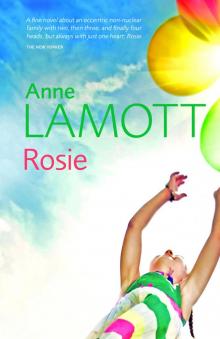 Rosie
Rosie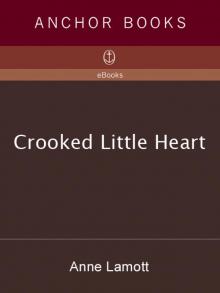 Crooked Little Heart
Crooked Little Heart Bird by Bird: Some Instructions on Writing and Life
Bird by Bird: Some Instructions on Writing and Life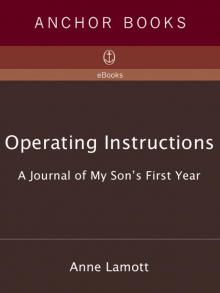 Operating Instructions: A Journal of My Son's First Year
Operating Instructions: A Journal of My Son's First Year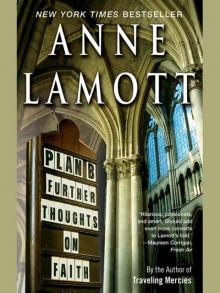 Plan B: Further Thoughts on Faith
Plan B: Further Thoughts on Faith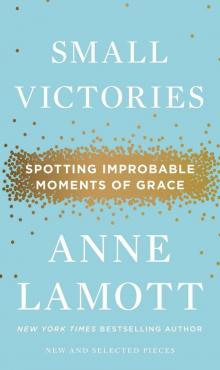 Small Victories: Spotting Improbable Moments of Grace
Small Victories: Spotting Improbable Moments of Grace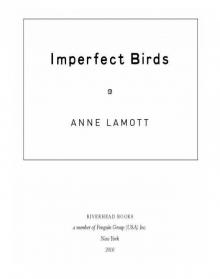 Imperfect Birds
Imperfect Birds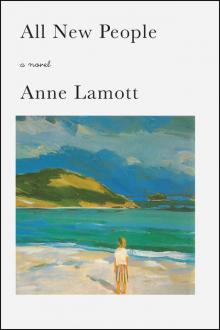 All New People
All New People Grace (Eventually)
Grace (Eventually)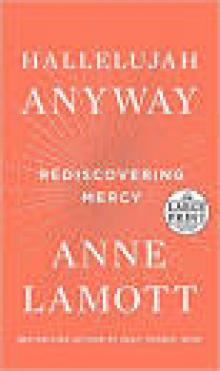 Hallelujah Anyway
Hallelujah Anyway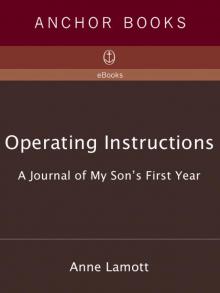 Operating Instructions
Operating Instructions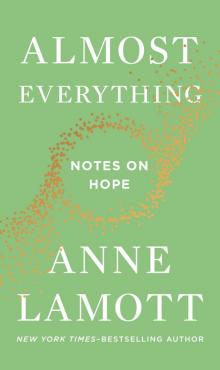 Almost Everything
Almost Everything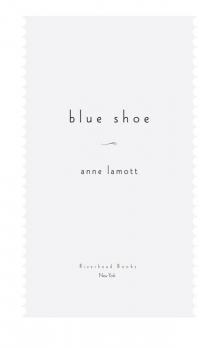 Blue Shoe
Blue Shoe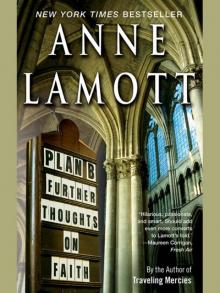 Plan B
Plan B Bird by Bird
Bird by Bird